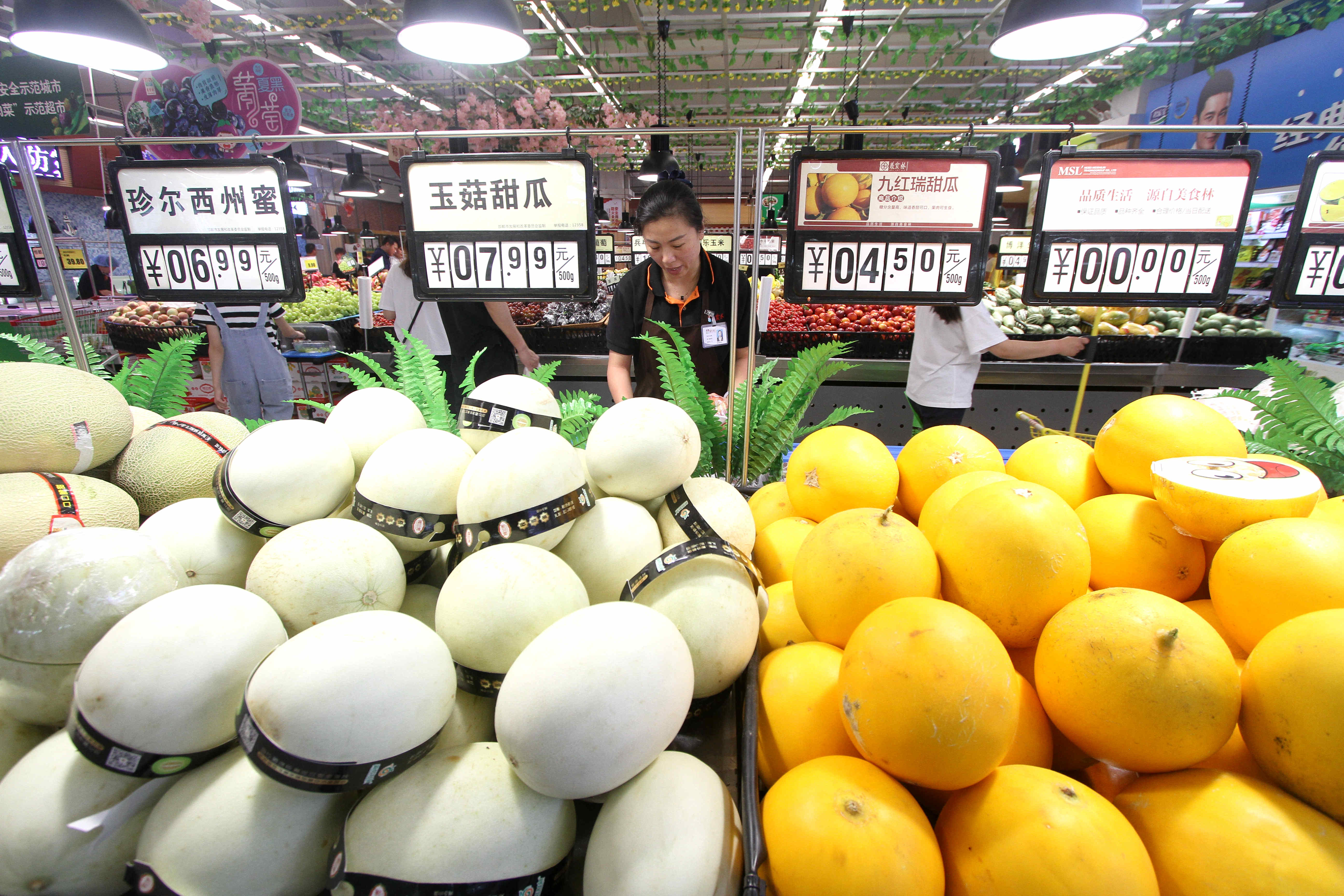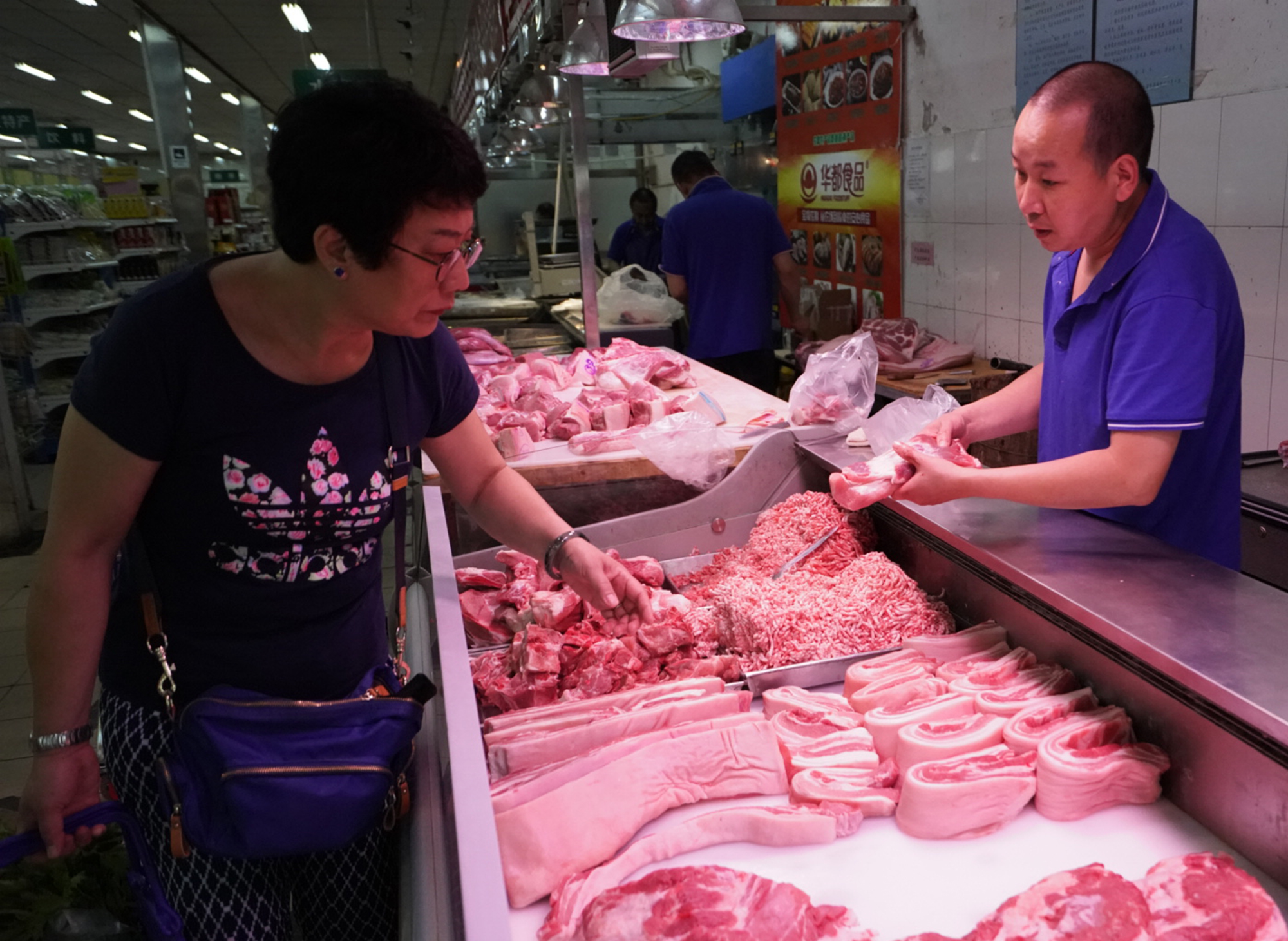
A saleswoman arranges fruit at a supermarket in Handan, north China's Hebei Province, June 12, 2019. (Xinhua/Hu Gaolei)
China's consumer prices stayed elevated in July, while factory price inflation dropped year on year. The mild pressures will give the government more leeway to use multiple monetary policy tools to adjust the economic structure.
BEIJING, Aug. 9 (Xinhua) -- China's consumer prices stayed elevated in July, fueled by higher fruit and pork prices, while factory price inflation dropped year on year, showing that overall inflationary pressures remain under control.
The country's consumer price index (CPI), a main gauge of inflation, rose 2.8 percent year on year in July, up from 2.7 percent in June, the National Bureau of Statistics (NBS) said Friday.
The reading beat market expectations of 2.7 percent. On a month-on-month basis, consumer prices edged up 0.4 percent last month.
"July's CPI is probably the year's high," said Li Chao, an analyst with Huatai Securities.
Food prices grew 9.1 percent year on year last month, up from 8.3 percent in June, while non-food prices gained 1.3 percent, 0.1 percentage points lower than that of June.
Pricey fruits and pork continued to be the major factors behind the higher inflation rate, said NBS official Dong Yaxiu.
Prices of fruits surged 39.1 percent year on year, contributing 0.63 percentage points to July's CPI.

A customer selects meat at a market in Beijing, capital of China, July 10, 2019. (Xinhua/Luo Xiaoguang)
Pork prices continued the upward trend last month due to tight supplies, jumping 27 percent year on year and 7.8 percent month on month.
The CPI in urban and rural areas registered a year-on-year growth of 2.7 percent and 2.9 percent, respectively.
In the first seven months, consumer prices rose 2.3 percent from a year earlier on average, the NBS said. China set the CPI target for 2019 at 3 percent.
Friday's data also showed that China's producer price index (PPI), which measures costs for goods at the factory gate, fell 0.3 percent year on year in July.
The petroleum and natural gas mining sector led the drop, while a contraction in petroleum, coal and other fuel processing also widened, Dong said.
China International Capital Corporation Limited (CICC) projected that CPI may hold flat or edge down in the third quarter, while the year-on-year decline of PPI may widen.
"As the low base effect passes, the upside risk of CPI may lessen in the third quarter," CICC said in a research note.
However, CICC said industrial enterprise profit growth may remain under pressure in the second half as domestic and external uncertainties rise. A higher comparison base last year may also put further downward pressure on PPI, leading to a wider decline in PPI in the upcoming months.
Zhang Jun, a chief economist with China Fortune Securities, said that mild inflationary pressures will not be a constraint on the country's monetary policy.
The mild pressures will give the government more leeway to use multiple monetary policy tools to adjust the economic structure and improve the financing environment for micro- and small-sized companies, Zhang noted.



